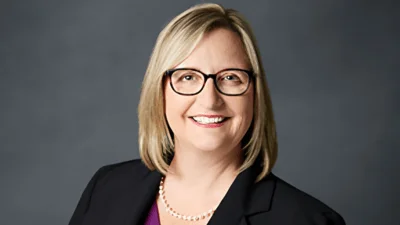Child care and prescription-drug cost seriously concerned Rep. Tom Demmer (R-Dixon) at a recent House Appropriations-Human Services Committee hearing.
Demmer discussed the specifics of two bills, beginning with HB5599, sponsored by Rep. Melissa Conyears-Ervin (D-Chicago), which provides income eligibility threshold for the child care assistance program (CCAP) for low-income working families.
“I appreciate the stories being shared, and I think there is wide agreement that quality child care is an important part of any family's life,” Demmer said.
Rep. Tom Demmer (R-Dixon) discusses HB5599 at Wednesday's House Appropriations Human Services Committee
Witness Jocelyn Ewing, who has been a child-care provider for 20 years, told lawmakers that Gov. Bruce Rauner’s cuts to child care in 2015 sent shock waves of instability through the state.
“People lost their jobs, and children lost vital care,” Ewing said. “If there was one thing I could say to Gov. Rauner, I would tell him he is crippling our community on so many levels."
Demmer discussed the bill's context, clarifying that the present mandate for families making less than 185 percent of the federal poverty level would be decreased to 50 percent.
“We want to ensure going forward this will be law so that we will not see what has happened in the past,” Conyears-Ervin said.
Brynn Seibert, director of the Childcare and Early Learning Division of SEIU Healthcare Illinois, said after Gov. Rauner's 2015 cuts, 90 percent of families who were once eligible for CCAP were cut off with an estimated 50,000 children losing access to the program within three months time.
“For the average Illinois family, child care is their single largest monthly expense,” Seibert said, adding that in 2017, the average cost for child care in an accredited facility was $15,000. “For low-income families and people of color, without programs like CCAP (child care) will quickly consume the majority of their income.”
Demmer questioned the bill.
“So there is two important components to this: first, that the administrative rule, which is how this is handled currently, says that 185 percent is the eligibility level, and the second piece is that the budget (that) was passed includes funding that is projected to be adequate to cover the 185 percent eligibility level,” Demmer said.
He said the bill was substantive and appropriations based legislation.
“This bill does not make an appropriation of specific dollars,” Demmer said. “If this bill becomes law, what would happen in the budget process this year or any year in the future?”
Conyears-Ervin did not have the answer.
“I am not asking you to forecast what is going to happen with our budget this year or any year," Demmer said. "That is an impossible task; but the reason I point that out is because I think it is important that we recognize, in order for any program to be successfully carried out, there has to be both a policy and the dollars that match that policy. If we only do one side of the equation, we cannot successfully deliver the program.”
After saying he will not make an empty promise, Demmer rejected the bill.
“I can’t support this bill today because it only looks at one side of it,” Demmer said. “You put your money where your mouth is.”
Conyear-Ervin concluded by countering Demmer's concerns, saying child care should not be based on the temperament of the governor, reminding Demmer 30,000 families lost child care after Rauner slashed the program in 2015. She said she hoped they could work together to see results for CCAP.
HB5211, sponsored by Rep. Sara Feigenholtz (D-Chicago), which lifts the four-prescription 30-day limit for residents of licensed long-term care facilities, was also questioned by Demmer, who wanted assurance that if an individual in a facility is on four distinct drugs, that person would not have to bump one drug to get another prescribed.
“That is an important concept to clarify,” Demmer said.
Both bills moved through committee and will be presented on the House floor.







 Alerts Sign-up
Alerts Sign-up